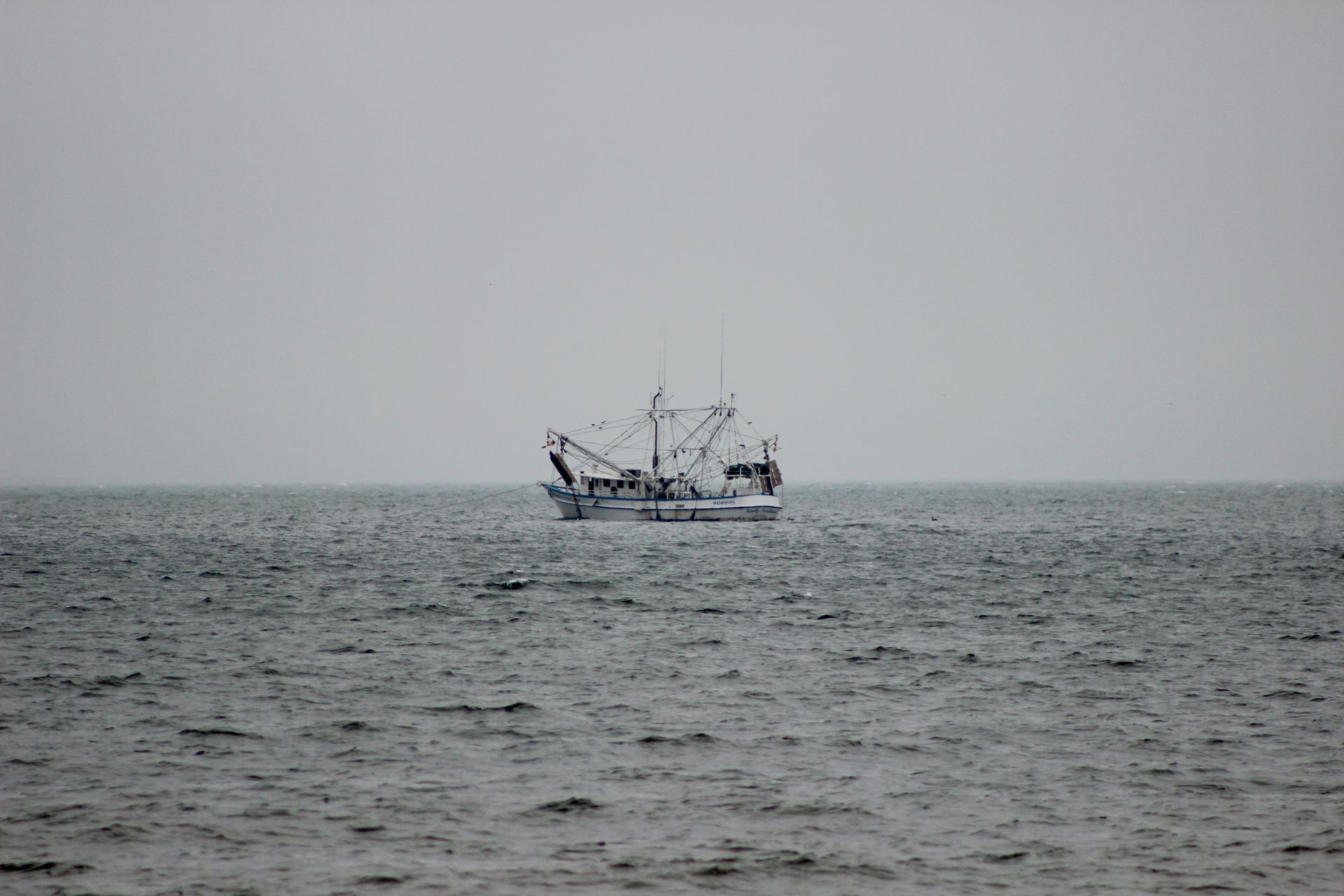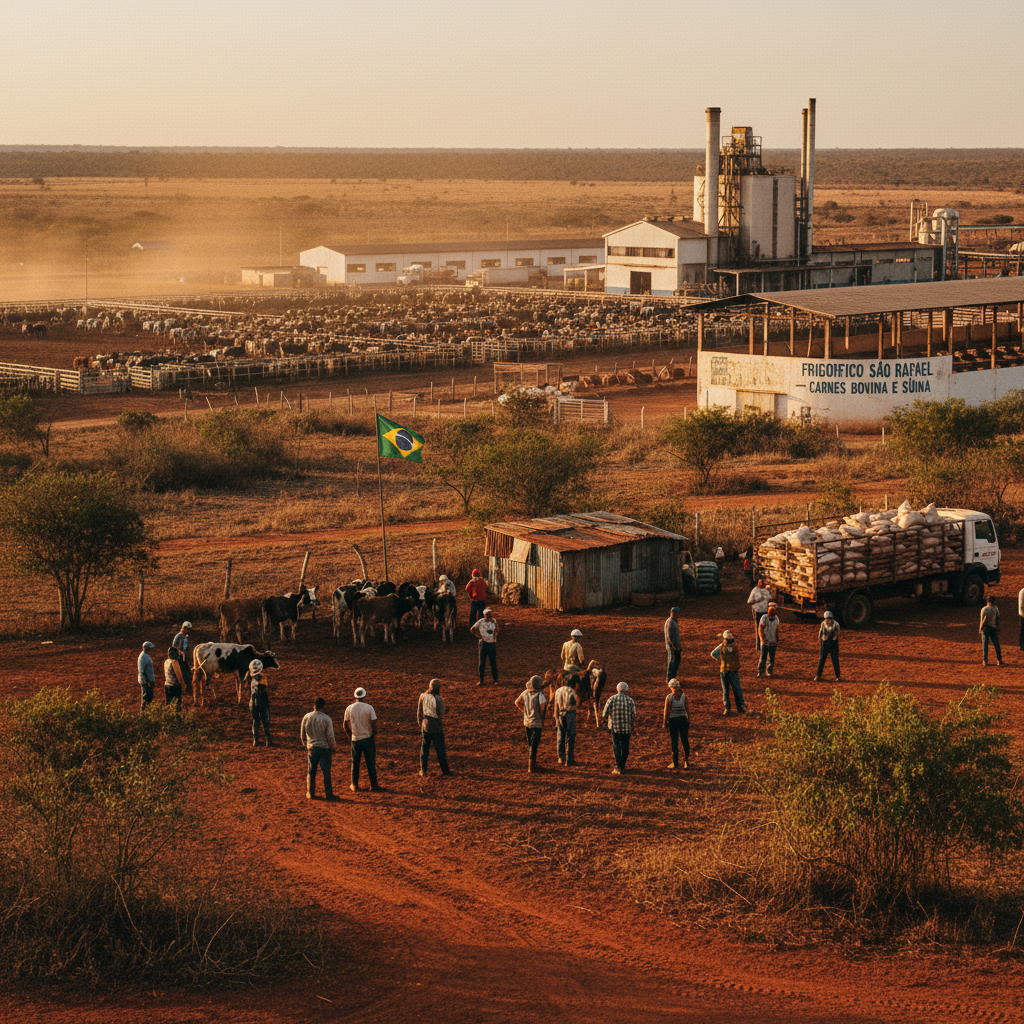Forced labor abuses in Indonesia’s tuna fishing sector
Indonesia is the world’s largest tuna producer, responsible for over 17.5% of global catches. It is also a major exporter of canned and processed tuna, with markets in the US and EU, making labor risks in this sector particularly relevant to international buyers.
Forced labor in the tuna fishing sector is a persistent concern in Indonesia, particularly involving Indonesian fishers employed on foreign-owned vessels operating in international waters.
Investigations by non-governmental organizations, journalists, and legal actors have consistently revealed a pattern of abuse and exploitation tied to global seafood supply chains.
Patterns of Exploitation at Sea
Indonesian workers on distant-water fishing vessels—primarily flagged to countries such as Taiwan and China—have reported being subjected to deceptive recruitment practices.
Many are recruited through third-party agencies using misleading contracts. These agencies have, in some cases, withheld passports and identification documents, making it difficult for fishers to leave their positions.
Debt bondage is also common, as workers incur recruitment fees that bind them financially to the job.

Recruitment is often mediated by informal brokers, or calo, particularly in large tuna ports such as Benoa. Some of these intermediaries are connected to organised crime and have been linked to charging excessive fees, which further traps workers in debt cycles.
Once aboard, conditions can be extremely poor. Crew members have reported long workdays that can exceed 18 hours, inadequate rest, poor nutrition, lack of drinking water, and denial of medical care. There are also consistent reports of physical abuse, threats, and coercion. Several Indonesian workers have died under these conditions, with their bodies reportedly discarded at sea.
Oversight Gaps
These abusive practices are facilitated in part by the use of trans-shipment at sea, a method that allows fishing vessels to remain offshore for extended periods without returning to port.
This reduces opportunities for external monitoring or intervention and makes it harder to detect and prevent human rights violations.
Legal frameworks exist in Indonesia to address labour conditions at sea, such as Ministerial Regulation No. 2/2017 on human rights certification for fishing vessels. However, enforcement remains weak, and the country has not ratified key international standards such as ILO Convention No. 181 on private employment agencies.
Documented Incidents
One prominent case involved the Chinese-owned Dalian Ocean Fishing Company. In 2019, 24 Indonesian crew members were assigned to the Long Xing 629, where survivors later reported gruelling conditions and physical abuse. Four of the fishers died during the voyage.
In similar cases involving Chinese vessels such as the Wei Yu 18 and Zhen Fa 7, Indonesian workers died from beriberi, a disease linked to malnutrition. The case of Daniel Aritonang, a young Indonesian man who died under these conditions aboard the Zhen Fa 7, was widely reported. His body was disposed of at sea.
In a separate case that gained international attention in 2025, four Indonesian fishers filed a lawsuit against the U.S.-based seafood company Bumble Bee Foods. The suit alleges that Bumble Bee knowingly benefitted from forced labour aboard Taiwanese vessels that supplied its tuna.
According to a report by Greenpeace Southeast Asia and the Indonesian Migrant Workers Union (SBMI), at least 12 Taiwanese-flagged vessels were involved in such abuses between 2019 and 2024. Four of these vessels supplied tuna to Bumble Bee.
The report includes testimonies from workers who described long hours, withheld wages, coercive working conditions, and links to illegal fishing practices such as shark finning. One fisher reported fainting from exhaustion but being pressured to continue working. He later saw the tuna he had caught sold under the Bumble Bee brand in a U.S. supermarket. Bumble Bee Foods did not provide a public response to these allegations at the time of the report’s release.
Supply Chain Exposure
The Indonesian tuna fishing sector is structurally dependent on foreign distant-water fleets, particularly those from Taiwan and China. Most reported abuses occur in international waters where jurisdiction is limited and oversight weak.
Informality in contracting and the presence of multiple middlemen in remote supply chains make it difficult for buyers to verify conditions. Tuna is often sold through informal arrangements, with few fishers receiving written contracts. In some reported cases, fishers earned as little as USD 4 per day before deductions.
Similar risks are found in tuna processing, where factory workers have reported deception about employment terms, denial of leave, and reliance on short-term contracts. These factors reduce accountability and increase the risk of abuse.
Initiatives such as seafood traceability systems, third-party certifications, and transparent supplier disclosures can help improve oversight. Businesses involved in tuna sourcing, as well as consumers and regulators, are encouraged to examine supply chain practices more closely.
Due diligence, vessel-level transparency, and worker feedback mechanisms are increasingly recognised as key components in addressing labour exploitation at sea. Greater awareness and scrutiny from downstream actors can help ensure that tuna products are not linked to abusive practices.



